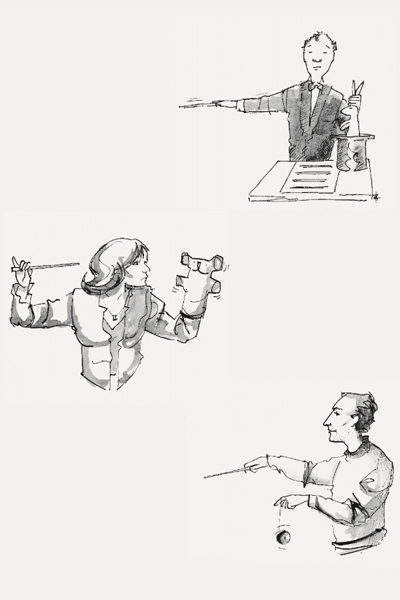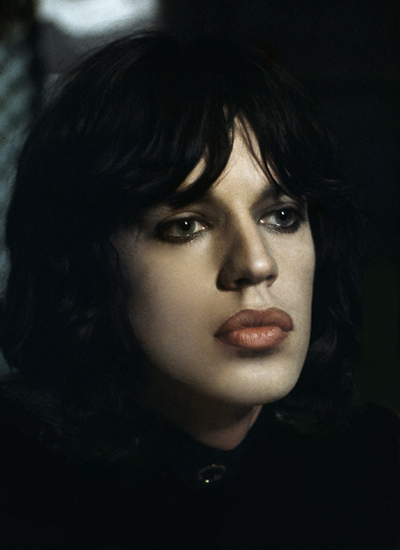This year marks the fourth Granta ‘Best of Young British novelists’, begun in 1983, but it is the first time that an audio version has been produced. Granta’s American editor, John Freeman, introduces the collection: three complete stories and 17 excerpts from work-in-progress from all 20 novelists, half of them read by the authors themselves. The result is a tremendous extra dimension of reality.
Sunjeev Sahota quotes Salman Rushdie: ‘To understand just one life you have to swallow the world.’ These 20 novelists, including Sahota, have certainly done so, with settings including Somalia, old Beijing, drug experimentation on the Burma-Thai border, Yorkshire in flood, Ghana and, in a quarter of them, the USA.
This diversity is reinforced by the narrations — the voice in your head when reading can’t match hearing Sataj Garewal’s reading of the dialogue between immigrant Asian workers in Leeds, nor the sense of bleak displacement felt by Gábor and Balázs on their seedy ‘business’ trip to London conveyed by David Thorpe’s Hungarian accent. Reading her story set in Ghana, Taiye Selasi uses varying accents to highlight the tension between the local driver, his boss’s wife, and her wayward US-educated stepdaughter — although hearing her voice speaking the first-person male narrative is initially confusing. Varying American narrations are heard, with such a harsh and relentless Greenwich Village in Zadie Smith’s excerpt that I took to the printed page.
One of Freeman’s criteria in selecting the 20 ‘best’ was ‘the sense that writers were in dialogue with the novel as a form’. This may lie behind some of the collection’s weakest pieces. Is such a ‘dialogue’ evident in Jenni Fagan’s irritating present-tense, going-nowhere, staccato monologue by Cael, a half-drunk Londoner on a bus, his unpleasantness intensified by the authenticity of the narration and an excessive use of offensive expletives? Or in Steven Hall’s excerpt from The End of Endings, comprising two disparate pieces in unsuccessful genres (one of which, in the print version, is in white upside down on black)?
Those contributions showing Freeman’s criteria of bold style and ‘confident sweep of storytelling ability’, however, leave the listener wanting more. With Tahmima Anam’s abused Bangladeshi construction workers in Dubai in ‘Anwar Gets Everything’ — where Garewal’s narration of the controlled music of the Asian syntax hugely adds to the enjoyment — the listener shares the terror of Anwar trapped by a sandstorm, ‘the devil’s spit’, suspended on an insecure cleaning platform against the high-rise. I’m eagerly awaiting her Shipbreaker in 2014. Likewise, Evie Wyld’s sheep-shearing station in All the Birds, Singing, ‘hot as a bloody dog’s gut’ with its mysteries and dramas — as tough as its Australian narration — transports instantly. Perhaps it was a poor choice of extract from You Don’t Have to Live Like This, but of Benjamin Markovits’s tedious US college students Greg and Robert and Mike and Beatrice and Nikki, I had no wish to hear any more. And surely Xiaolu Guo, in Interim Zone, could have found a more enticing contribution than the scant two-parter here? And could not the narrator have pronounced réfugié correctly the five times it occurs?
Remarkable here in comparison with the 2003 collection is that ‘fuck’ and its many proliferations, even more obvious on audio, seem de rigueur. Sex or warm physical intimacy is virtually absent, unless you count Win’s sex with Hseng, his Chinese boss of the yaba factory in Ned Beauman’s piece, ‘Glow’, which was like ‘having ten thousand scalding-hot pork dumplings shot at you point blank out of a greasy mortar cannon’. Humour merely flashes in bitter sound-bites; only Naomi Alderman attempts sustained humour in her satirical tale, ‘Soon and in Our Days’, of the Prophet Elijah coming to Mrs and Mrs Rosenbaum’s house in Finchley Lane.
A sense of displacement or duality, tension and struggle in a difficult world, emerges as the collection’s dominant theme. When combined with some tenderness, this distinguishes my top three, all of whom read their own excerpts with every phrase, pause and inflexion nuanced, making them more indelible than on the page. Kamila Shamsie’s beautifully modulated voice suits her infinitely poignant story, ‘Vipers’, of Kalam’s tender care for his wounded compatriot at Ypres. Qayyum, now with ‘the mess that was his eye’, wishes he had stayed in the orchards in Peshawar.
The duality within Sarah Hall’s Rachel lies in her studies amongst Idaho wolf packs which ‘reign outside the mind’, and her return to the ‘leaking ruin’ of her once destructive, now dying mother. Hall’s language in The Reservation is sensitive — the ‘fine slings’ of Cumbrian rain — and her exploitation of syntactical variation invigorating. Adam Foulds’s Will, in A World Intact, returns to his English country home before taking up a lowly posting during the second world war. His mother is distrait since his father’s death, his brother resentful: this is no longer ‘a world intact’. Every detail counts: the ‘fastidious, vertical pen strokes’ in his father’s signature; the ‘soft upholstery’ of the spaniel’s ears.
Got something to add? Join the discussion and comment below.
Get 10 issues for just $10
Subscribe to The Spectator Australia today for the next 10 magazine issues, plus full online access, for just $10.
Samples and interviews on: www.granta.com/New-Writing/Categories/Best-Young-NovelistsGranta Best of Young British Novelists 4
You might disagree with half of it, but you’ll enjoy reading all of it. Try your first month for free, then just $2 a week for the remainder of your first year.










Comments
Don't miss out
Join the conversation with other Spectator Australia readers. Subscribe to leave a comment.
SUBSCRIBEAlready a subscriber? Log in